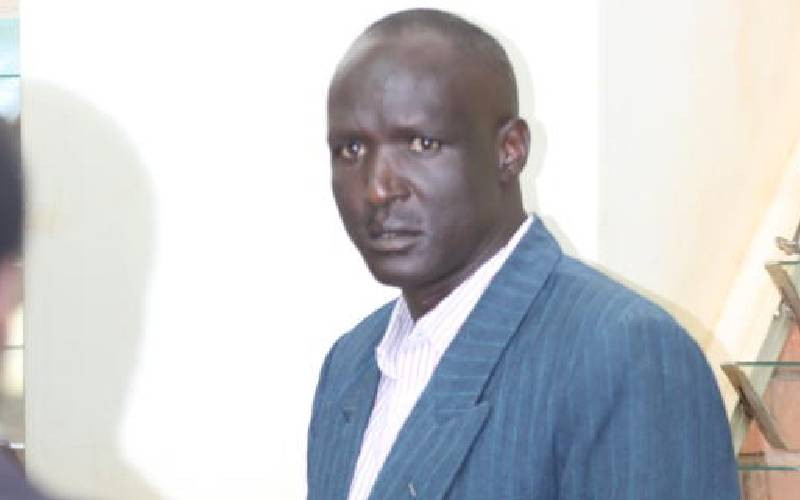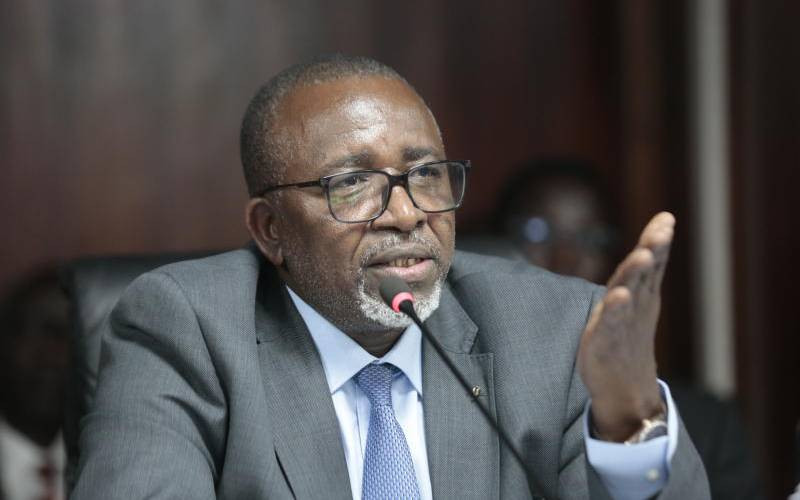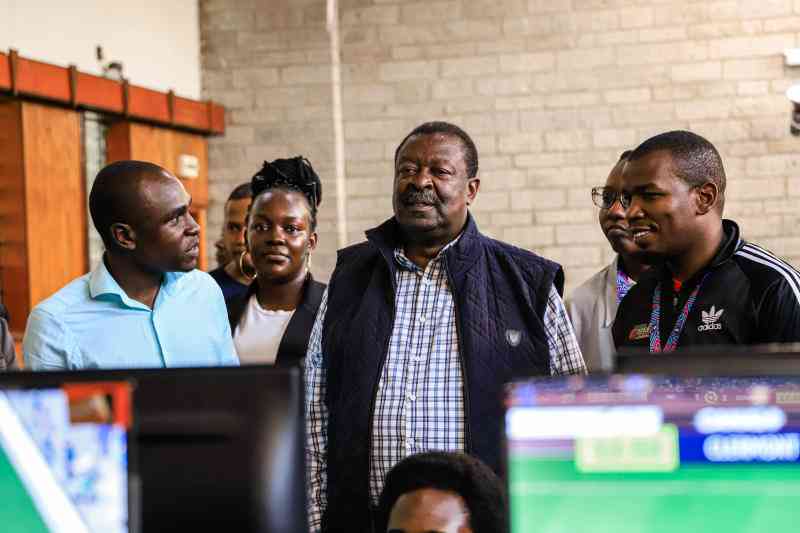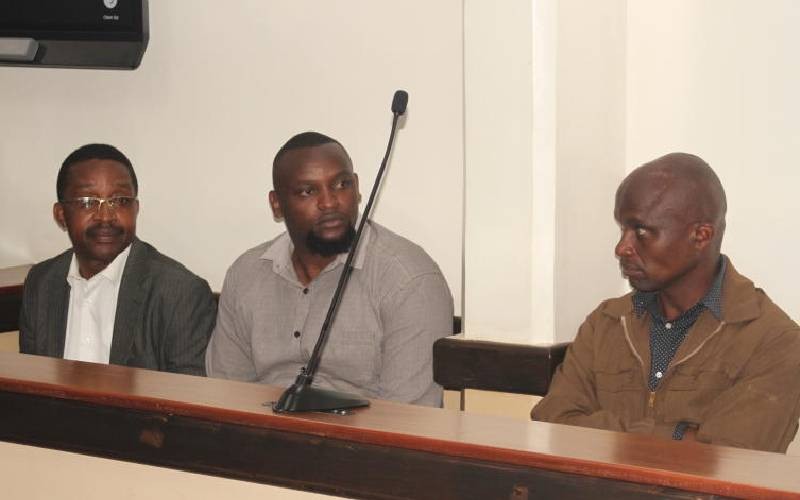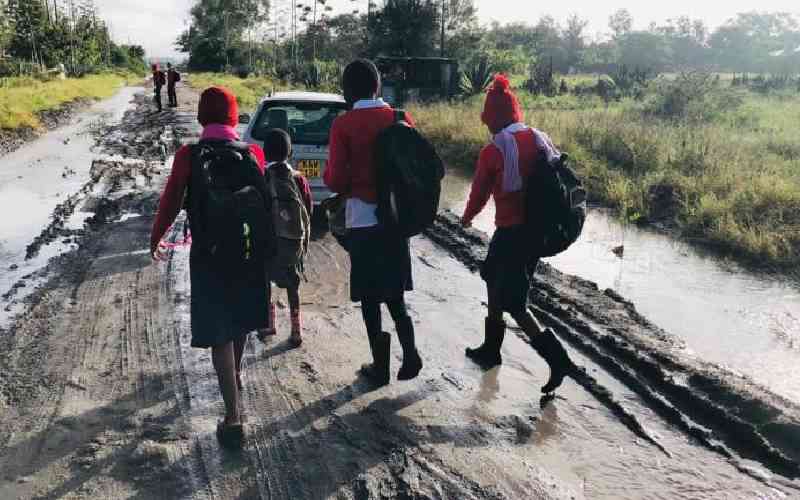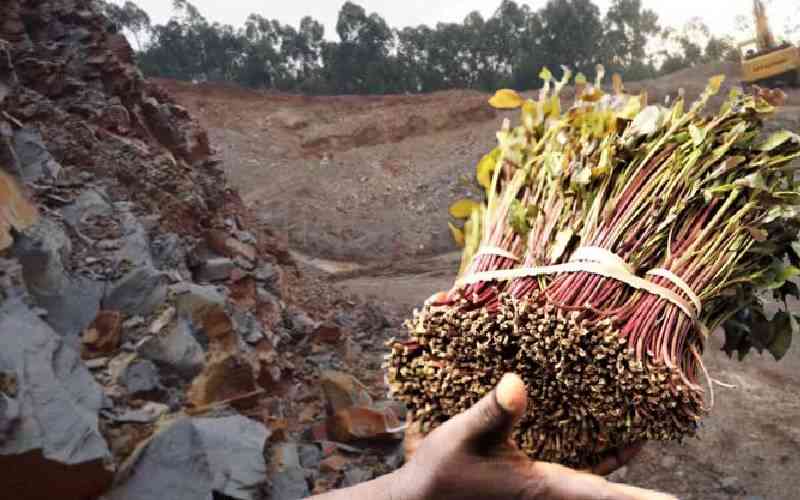By Wahome Thuku
Trial Chamber V judges of the International Criminal Court (ICC) have cleared the way for two prominent suspects to campaign for the presidency in Kenya’s General Election.
The judges set April 10 and 11 as the start dates for trials in the two Kenyan cases at The Hague, easing fears Deputy Prime Minister Uhuru Kenyatta and Eldoret North MP William Ruto would be unable to head their various campaigns for State House.
However, the ruling is a blow to former Head of the Civil Service, Mr Francis Muthaura, one of the four suspects in the two Kenyan cases at the ICC, who wanted the trials to start this year.
Suspects are required to be present throughout the trials. Ruto and radio journalist Joshua arap Sang are suspects in the first case to start on April 10, while the trial of Uhuru and his co-accused Muthara will now begin on April 11.
The four are charged with crimes against humanity in relation to the post-election violence of 2008.
Barring a successful challenge to their candidacies in the local courts, Uhuru and Ruto who have declared they will be on the ballot in the polls scheduled for March next year, are now assured of an unbroken campaign for the top seat.
character change
The International Centre for Policy and Conflict (ICPC) has filed a case in the High Court seeking a ruling on the eligibility of Uhuru and Ruto to run for State House.
The civil society organisation wants the court to state whether Uhuru and Ruto meet the requirements of Chapter Six of the Constitution of leadership and integrity.
“Today, 9 July 2012, Trial Chamber V of the International Criminal Court (ICC) issued scheduling orders setting the dates for the commencement of the trials in the two Kenyan cases, establishing a time table for the various procedural steps required to be undertaken before the opening of the trials to guarantee the fairness of the procedures,” read the release by the ICC on its web page.
A date after March next year had been accepted by both the prosecution and the defence in the two cases during the status conferences last month, but was subject to the approval by the court.
During the status conferences the prosecution surprisingly backed trial dates after the elections.
The ICC prosecution intends to change the character of the charges against Uhuru, Ruto and Muthaura to widen the net and ensure there is a high chance of conviction.
The decision of the court did not say how long the trial would take but legal experts have already indicated that it could take many months.
Stay informed. Subscribe to our newsletter
Both Uhuru and Ruto had been pushing for a date after March next year, on the basis of their political interests. But during the status conference, Muthaura asked the court to set a hearing this year and expedite the trial.
His lawyer Karim Khan said Muthaura, who retired from the public service after charges were confirmed wanted to get off with the case and continue with his private life.
The prosecution intends to call 25 to 35 witnesses in Uhuru’s case and had pleaded with the Chamber to synchronise the two cases as closely as possible due to security and tension generated in the county by the impending trials.
Under the Rome Statute, the accused must be present in person throughout the trial. That could complicate matters if either Uhuru or Ruto wins the presidency and are required to be in The Hague, Netherlands for weeks or months.
The other issue would be the complications over the Government’s position that a Head of State enjoys immunity against trial for international crimes.
This position has been taken and advocated by the Attorney General Githu Muigai, despite a decision by the ICC to the contrary.
The defence teams wanted the judges to first dispense with one case before moving on to the second, claiming this would help the court understand the chronological order of events that led to the post election violence, but the judges disagreed.
After setting the trial dates, the parties will then engage in streamlining their schedules for the trial.
Uhuru’s defence and the prosecution have already agreed on how evidence, including names of witnesses will be released to him ahead of the trial.
Between now and April 10, both Uhuru and Ruto will have to split their time between political campaigns and preparing for the cases. It will be a burden hanging on their shoulders, shuffling between politics and the preparations.
The ICC expects them to maintain peace during the campaigns as a condition for their freedom.
The four Kenyan suspects have undertaken to turn up for their trials, a position the prosecution appreciated, but demanded that it be put in writing.
tighten evidence
The prosecution has thousands of items it will need to disclose to the defence ahead of the trials and has indicated that some material to be used in the case will be released to them right away, while others will be disclosed after a protocol of redaction is agreed by both parties and approved by Trial Chamber V.
Legal experts believe that the prosecution accepted a date after March next year so as to tighten its evidence and complete investigations.
The defence is opposed to moves by the prosecution to change the character of the cases or even to amend the charges, although a precedent was set in the trial of convicted war criminal Thomas Lubing from the Democratic Republic of Congo, where the trial judges allowed the prosecution to amend the charges.
 The Standard Group Plc is a
multi-media organization with investments in media platforms spanning newspaper
print operations, television, radio broadcasting, digital and online services. The
Standard Group is recognized as a leading multi-media house in Kenya with a key
influence in matters of national and international interest.
The Standard Group Plc is a
multi-media organization with investments in media platforms spanning newspaper
print operations, television, radio broadcasting, digital and online services. The
Standard Group is recognized as a leading multi-media house in Kenya with a key
influence in matters of national and international interest.
 The Standard Group Plc is a
multi-media organization with investments in media platforms spanning newspaper
print operations, television, radio broadcasting, digital and online services. The
Standard Group is recognized as a leading multi-media house in Kenya with a key
influence in matters of national and international interest.
The Standard Group Plc is a
multi-media organization with investments in media platforms spanning newspaper
print operations, television, radio broadcasting, digital and online services. The
Standard Group is recognized as a leading multi-media house in Kenya with a key
influence in matters of national and international interest.

